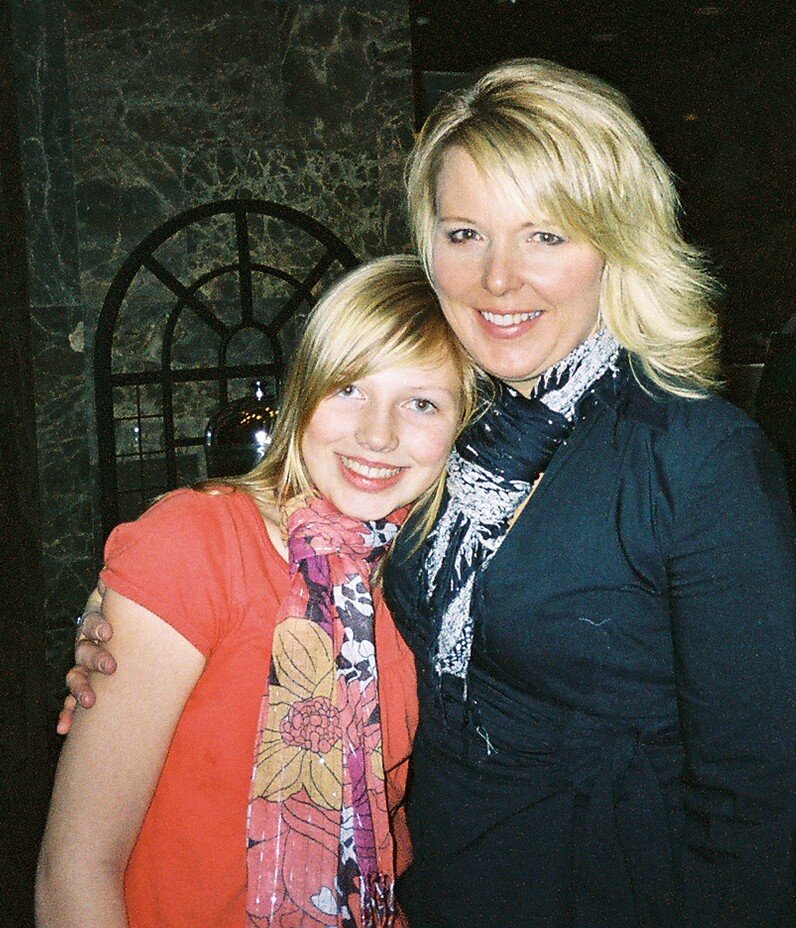“The fading light is us, and we are, for a moment so brief (…) beautiful.”
– Gary Shteyngart


Emily: I say her name as a whispered prayer filled with sweetness and light; frustration and sorrow. I sacrificed myself on the altar of parenthood when she made me a mother, in both small and big ways. I was that mother, who at Midnight, was making trips to Walmarts all over town, scouring the shelves for slippers when Emily had just remembered before falling asleep that the next day at school was “slipper day,” and she didn’t have a pair. I was that single mother, working two jobs, in order to pay thousands of dollars for her to be on traveling gymnastics and cheer teams. I gladly used up my vacation days to ride on uncomfortable buses, for 24 hours or more, across the country to national meets. The sacrifices I made for my daughter were not remarkable. In fact, most Gen X parents do these kinds of things and much more, without giving it a second thought; all because we want to give our children the best lives possible and in many cases a kind of childhood we never had.
While working so hard to make sure she had the best of everything, it never entered my mind that she could want anything less than the best for and from herself. When the teenage years hit and Emily began going rouge, it seemed as if all my sacrifices were for nothing. When she died, I was left holding an empty space in my head and heart for a life that I had worked so hard to help shape and mold—a daughter who would never realize the dreams that she had for herself. Society had told me that if I worked very hard for something and never gave up, all would be well. Wait, not just well—triumphant. I worked very hard at being a mother. I never gave up on my daughter. All is not well. Instead of triumph, I lost. She lost. We all lost. I was straight up sold a rotten bill of goods. Emily’s death taught me that no matter what we do for another person, no matter how much we sacrifice ourselves, no matter how many times we try to do the right thing, even when it’s hard, we cannot control the trajectory of another person’s life—even the lives of our own children.
Here I sit at my writing desk, these words spilling out of me and onto the page on the third anniversary of Emily’s death. Time is bittersweet—sweet in that it dulls the intensity of the pain—bitter in that my daughter’s presence isn’t as strong in both my heart and my head. While I think of her every single day and do charity work in her name, she has begun to fade. I can’t quite as strongly recollect the sweet smell of the nape of her neck when I leaned in to give her a hug. I can’t quite hear the soft melody of her voice in my head as loudly as I could in the days, weeks, and months after her death. Life is both an exciting and terrifying amusement ride that only moves forward. Life demands we meet it on its terms and it isn’t stopping for anyone, even for those of us mourning our children.

I don’t want Emily to fade. I want to be able to vividly relive giving her a baby massage—rubbing lotion into her skin after her bath when she was an infant, as she smiled and cooed back at me—then, wrapping her in a fluffy robe and snuggling her in my arms. I want to relive sitting on the floor for hours with toys scattered around us, building towers with colorful Winnie-the-Pooh blocks; or swooping her in my arms to reading her, If You Give a Mouse a Cookie, Chrysanthemum and The Lady With the Alligator Purse. But each year that passes, those memories are a little less vivid, a little less real and I know they will eventually fade altogether.
I am unable to keep Emily alive in my heart and in my head because she is no longer alive. In the early days that followed her death, mornings were the toughest. I lay in our darkened bedroom, unable to face the light. My kind, sweet husband would hold me in his arms while I wept. On this third anniversary of her death, my husband held me, but I did not cry. Instead, I mused about how it felt as if Emily was moving further and further away from me, fading into the distance. I hate the fade. I will always carry the torch for the light my daughter was in the world, I just can’t stop it from dimming.


